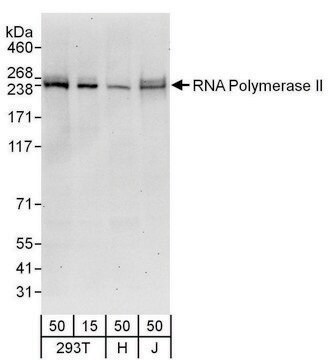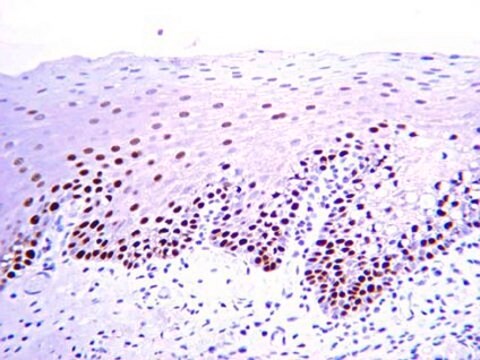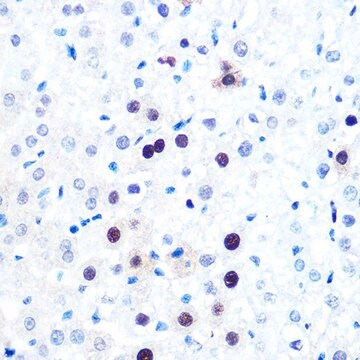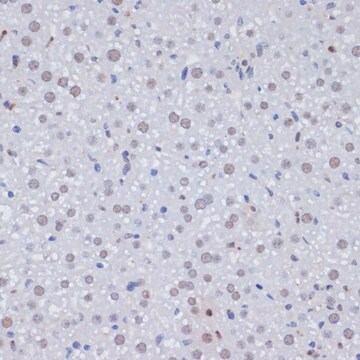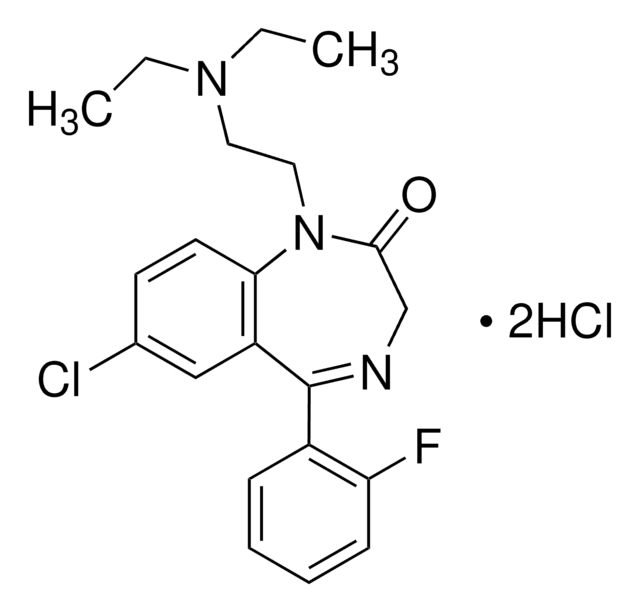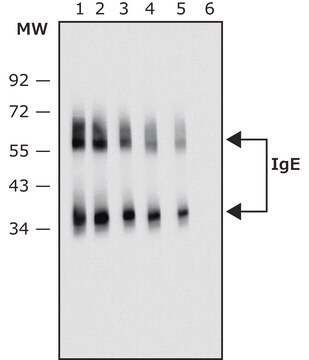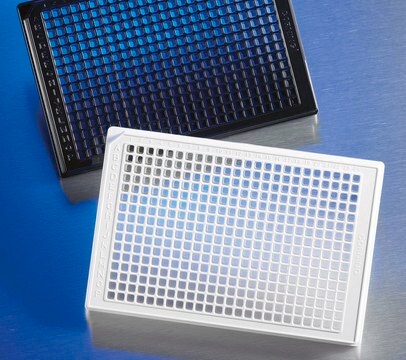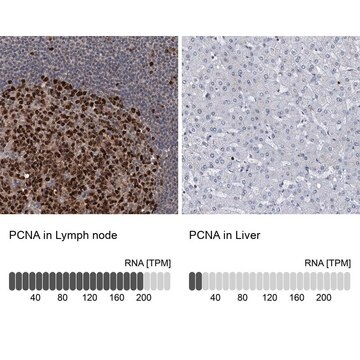PLA0079
Rabbit anti-PCNA Antibody, Affinity Purified
Powered by Bethyl Laboratories, Inc.
Sinônimo(s):
ATLD2, DNA polymerase delta auxiliary protein, PCNA, cyclin
About This Item
Produtos recomendados
fonte biológica
rabbit
Nível de qualidade
forma do anticorpo
affinity purified immunoglobulin
tipo de produto de anticorpo
primary antibodies
grau
Powered by Bethyl Laboratories, Inc.
reatividade de espécies
human, mouse
técnica(s)
flow cytometry: 0.03 μg
immunohistochemistry: 1:2,000- 1:10,000
immunoprecipitation (IP): 2- 5 μg/mg
western blot: 1:1,000- 1:10,000
nº de adesão
P12004
nº de adesão UniProt
Condições de expedição
wet ice
temperatura de armazenamento
2-8°C
modificação pós-traducional do alvo
unmodified
Informações sobre genes
rabbit ... PCNA(5111)
Descrição geral
Imunogênio
Aplicação
- proximity ligation assay (PLA) (1:500)
- immunoblotting (1:2000)
- flow cytometry analysis
Ações bioquímicas/fisiológicas
forma física
Outras notas
Exoneração de responsabilidade
Não está encontrando o produto certo?
Experimente o nosso Ferramenta de seleção de produtos.
Código de classe de armazenamento
12 - Non Combustible Liquids
Classe de risco de água (WGK)
nwg
Ponto de fulgor (°F)
Not applicable
Ponto de fulgor (°C)
Not applicable
Escolha uma das versões mais recentes:
Certificados de análise (COA)
Não está vendo a versão correta?
Se precisar de uma versão específica, você pode procurar um certificado específico pelo número do lote ou da remessa.
Já possui este produto?
Encontre a documentação dos produtos que você adquiriu recentemente na biblioteca de documentos.
Nossa equipe de cientistas tem experiência em todas as áreas de pesquisa, incluindo Life Sciences, ciência de materiais, síntese química, cromatografia, química analítica e muitas outras.
Entre em contato com a assistência técnica